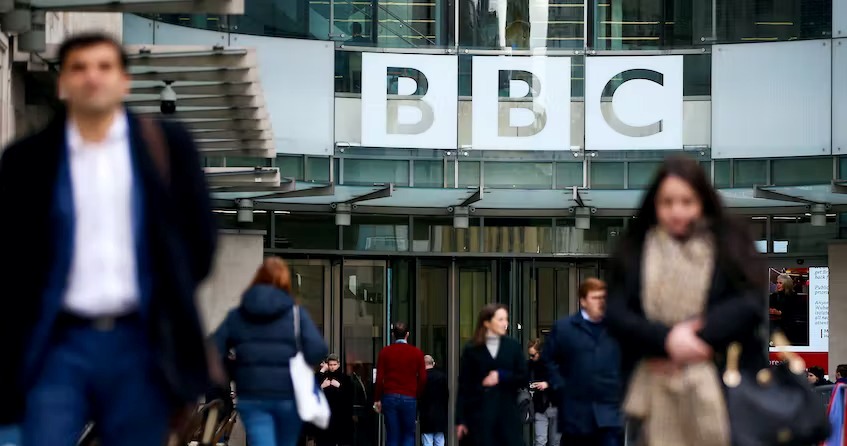The Indian government seems perplexed when it blocked the airing of a BBC documentary which has questioned Prime Minister Narendra Modi’s leadership as Chief Minister during the 2002 Gujarat riots. The step was taken only a few days before the country celebrates 26 January as Republic Day marking the triumph of democracy. It puts the country’s credentials as a liberal democracy under a scanner in the comity of nations. The blocking means even sharing of any clips of the two-part series via social media is barred. Only autocratic regimes resort to such suppression of facts and journalistic probe into alleged crimes by ruling dispensations or supreme leaders.
Undoubtedly, BBC is no impartial news source but the response by the Indian government looks frantic. The main argument being put forward by the support lobby on social media for this frenzied blocking is that since the Supreme Court had given a clean chit to Modi, this documentary is motivated and ill intentioned. This same lobby, it may be reminded, constantly hammers away at the same Supreme Court of India whenever a judgement seems unfavorable to the Right wingers. To top this, a Gogoi or a Bobde type character is enough to besmirch any law Court.
The documentary is a critical appraisal of the role Narendra Modi played as Chief Minister of Gujarat in the deadly 2002 riots in his state. Multiple YouTube videos of the first episode of the BBC documentary – India: The Modi Question -, and more than 50 tweets with links to the YouTube videos were ordered to be taken down. The content was blocked using the emergency powers under the IT Rules, 2021.
The first of the two-part series documentary, aired on 17 January, traces Modi’s early years as a politician and his rise through the ranks of the BJP. During Modi’s Chief Ministerial tenure in 2002 Gujarat was gripped by communal riots that left more than 1,000 people dead – most of them Moslems. The violence erupted after a train – Sabarmati Express – carrying Hindoo pilgrims caught fire at Godhra station, killing 59. The documentary revealed for the first time a British government report into the deadly 2002 religious riots. The UK report said the events had “all the hallmarks of an ethnic cleansing,” the documentary showed.
Most prominent among those interviewed in the documentary is Jack Straw, who was the UK’s foreign secretary at the time of the violence. He said during the interview the allegations against Modi undermined his reputation. “These were very serious claims – that Chief Minister Modi had played a pretty active part in pulling back the police and in tacitly encouraging the Hindoo extremists. That was a particularly egregious example,” Straw said. The most damning piece of disclosure, hitherto unheard of, is that the British government began an inquiry into the orgy of violence and sent a team to Gujarat to find out for themselves what had happened. According to Straw the team produced “a very thorough report.”
The report also claimed there was widespread rape of Moslem women during the 2002 violence. It added that the riots’ objective was to “purge Moslems from Hindoo areas.” The narrative is in tune with what critics of the BJP say about the saffron brigade’s bigoted nationalist agenda. The British government slapped a boycott on Modi in the aftermath of the pogrom and ended it 10 years later in 2013.
The documentary was not made available in India, but it was uploaded on several YouTube channels and shared widely on Twitter. The second episode will be aired on 24 January.
In a knee-jerk reaction, India’s Ministry of External Affairs dismissed the documentary as a propaganda piece.
Its spokesperson Arindam Bagchi even wondered what purpose it would serve and imputed some hidden agenda to the broadcaster. The government appears to have been rattled by the thoroughness of the reportage as it eventually banned it after having pompously said that it did not “wish to dignify such efforts.”
The BBC in turn stuck to its claim that the documentary was rigorously researched according to the highest editorial standards. “We offered the Indian Government a right to reply to the matters raised in the series – it declined to respond,” a statement issued by the broadcaster said.
The question is if the government is so sure of what it claims falsehood dished out in the documentary, why did it not let the people see the video and decide for themselves. This is how democracy functions. Some government apologists have argued the Opposition and government critics are betraying a colonial mindset by putting more faith in a foreign media than in the country’s apex court which has exonerated Modi of the charges.
The fact is people’s faith in the judiciary has taken a beating in recent times for controversial pro-government judgements. Shackling the media that the government cannot make pliant does not help the cause of democracy. Also, the same brigade was observed dancing on the streets when Rishi Sunak became Prime Minister of UK. Wonder if they would do the same now!
